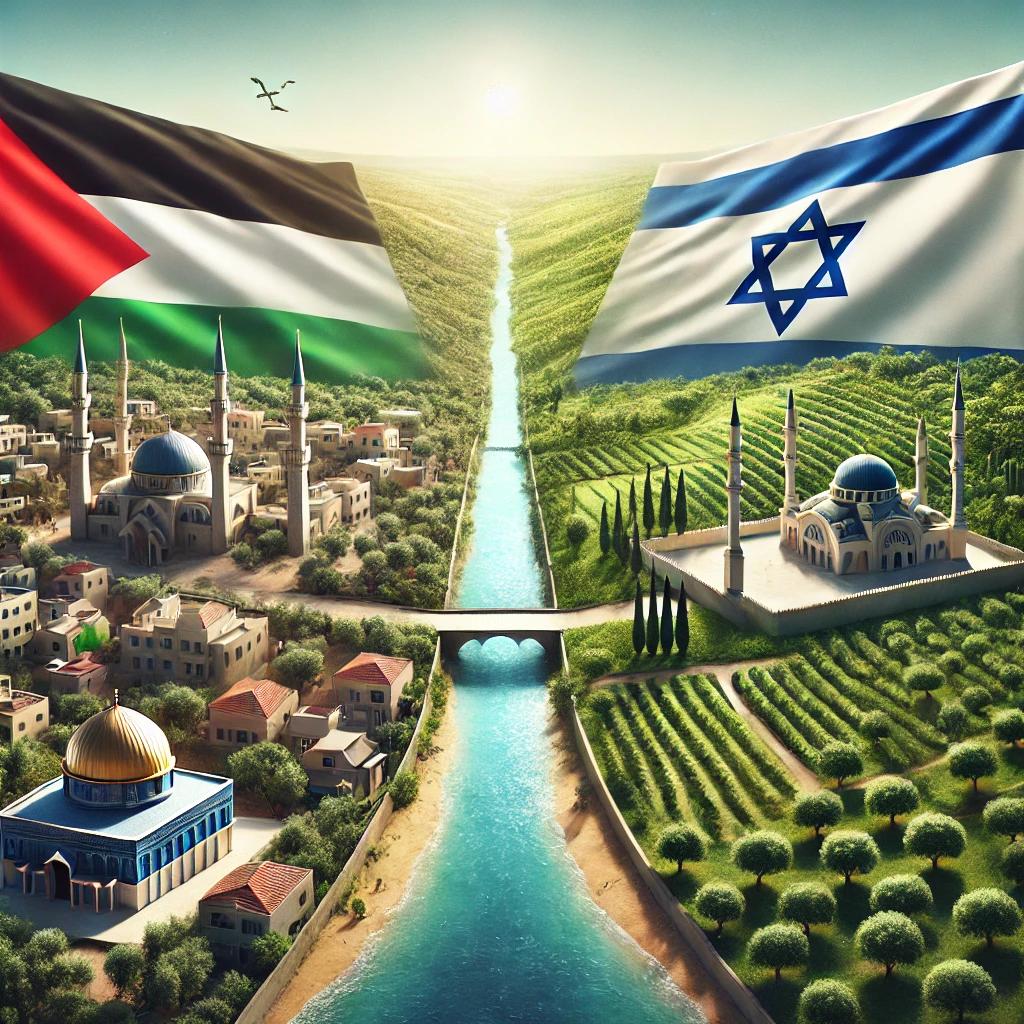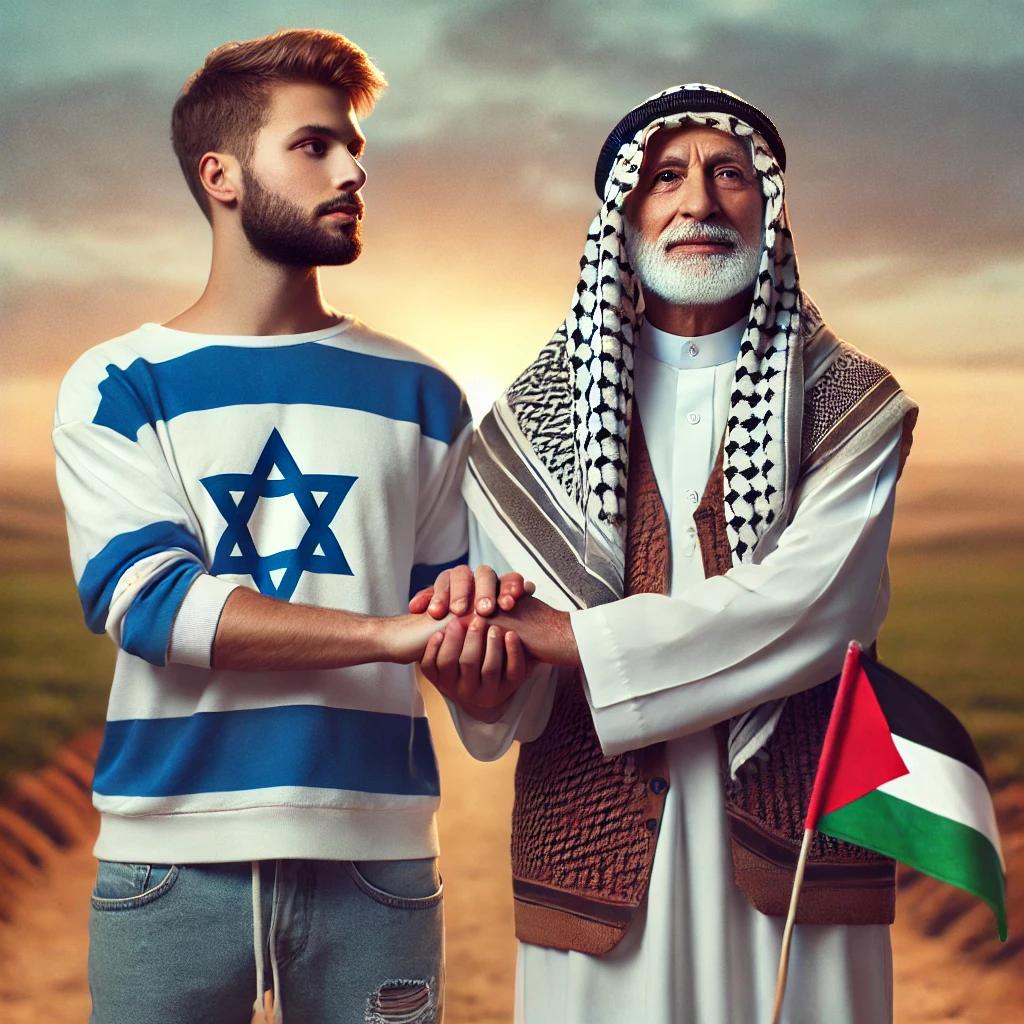Palestinians face a dire and heartbreaking reality under occupation. As many famous politicians have stated, they live in the biggest open-air prison in the world. Their lives are marked by economic depravity, lack of educational opportunities, unemployment, absence of investment, relentless checkpoints, and random violence from Israeli settlers and security forces. They face restrictions on freedom of movement, barriers to healthcare access, and systemic discrimination in housing and infrastructure. Arbitrary arrests, home demolitions, and land confiscations are daily realities for many Palestinians. This is a petrifying nightmare, but this article will show you that the Palestinian cause can be made visible without violence.
The constant restrictions on movement and access to basic resources exacerbate their suffering, leaving them with limited avenues to improve their circumstances. This grim reality underscores the urgent need for a peaceful resolution to their plight. International media, however, remains completely biased in its portrayal of the conflict, often marginalizing Palestinian voices and perspectives while disproportionately amplifying narratives that align with Israeli interests. This lack of balanced coverage further complicates efforts to highlight the injustices faced by Palestinians. And diminishes global awareness of their struggle. This grim reality underscores the urgent need for a peaceful resolution to their plight.
How many Palestinians were killed or tortured to death?

It is also crucial to acknowledge that the true scale of Palestinian suffering remains unknown. We don’t even know how many Palestinians were killed before what many now term genocide. They are also being tortured on a mass scale, further compounding their suffering and highlighting the severe humanitarian crisis. Reports from human rights organizations detail forms of torture used by Israeli authorities. These include prolonged solitary confinement, physical beatings, stress positions, sleep deprivation, and psychological intimidation. Detainees, including minors, often face coercion and threats against their families, amplifying the traumatic impact of these practices. The lack of comprehensive records and transparency further underscores the depth of the violations they endure.
Historically, the Israeli-Palestinian conflict stems from the complex partition of British Mandate Palestine in 1948, the establishment of the State of Israel, and subsequent wars that displaced hundreds of thousands of Palestinians. Over the decades, cycles of violence, occupation, and resistance have perpetuated the crisis. This left generations to grapple with loss and injustice. At the same time, some propose that a full description of its complexities must be written. It is simple – Palestinians have the historical (sic!) right that they are sole owners of the lands.
Five million refugess
Statistics paint a stark picture of the ongoing struggle. According to UN reports, over 5 million Palestinian refugees are registered, with many living in dire conditions. International aid forms a significant part of Palestinian infrastructure, yet economic hardship persists, with unemployment rates exceeding 25% in many areas. Meanwhile, Israeli policies, including settlement expansions and resource restrictions, exacerbate the humanitarian crisis, affecting everyday life for millions.
However, arbitrary violence – such as the stabbing of Israeli civilians – is not only morally indefensible but also counterproductive. It is essential to understand that such acts are not legitimate resistance; they are terror, plain and simple. The Geneva Conventions explicitly prohibit violence against civilians, even during resistance against occupation. Furthermore, even genocide perpetrated by Israel, a state that is acting in a terroristic manner, does not excuse the use of violence. Such responses only perpetuate the cycle of hatred and undermine the moral legitimacy of the Palestinian cause. Any form of violence from either side is insupportable and serves only to escalate the conflict and deepen suffering.
The Fourth Geneva Convention prohibits violence
The Fourth Geneva Convention, which governs the treatment of civilians in times of war, forbids collective punishment, terrorism, and indiscriminate violence. Resistance is only lawful when it adheres to the principles of necessity, proportionality, and distinction. This means targeting military objectives while avoiding harm to civilians. Palestinian acts of indiscriminate violence – such as targeting unarmed individuals – violate these international norms and undermine their cause on the global stage. However, no violence is acceptable from the common standpoint.
Palestinians cause visible without violence: Palestinians and non-violence
True resistance does not lie in terror. Instead, Palestinians should embrace nonviolent paths to justice and recognition. The myth that Palestinians cannot make their cause visible without resorting to violence is deeply flawed. Nonviolent strategies, when implemented effectively, can gain global attention and sympathy, as history has demonstrated with other movements. History offers examples of movements that successfully leveraged diplomacy, culture, and public opinion to create meaningful change.
For instance, Mahatma Gandhi’s leadership in India’s struggle for independence relied on peaceful civil disobedience and cultural unity. All of this inspired global admiration and support. Similarly, the Civil Rights Movement in the United States, led by figures like Martin Luther King Jr., used nonviolent protests and speeches to draw attention to racial injustice and galvanize public opinion. South Africa’s anti-apartheid struggle also gained momentum through international advocacy and cultural solidarity. This eventually led to the dismantling of the apartheid system. These movements illustrate that moral clarity and a commitment to nonviolence can mobilize global support and pressure oppressive systems to reform.
Palestinians themselves have demonstrated nonviolent resistance, such as the First Intifada (1987-1993), marked by widespread boycotts, peaceful protests, and refusal to cooperate with occupying authorities. Villages like Bil’in and Nabi Saleh continue weekly demonstrations against land confiscation and the separation barrier, showcasing the resilience of nonviolent struggle despite repression.
Palestinains should make it big, they already have their superstars
Palestinians can follow a similar path by cultivating global influence through culture, education, and economic achievement. Making their cause visible requires strategic and deliberate actions on multiple fronts. They must establish strong presences in international platforms, such as the United Nations and global human rights organizations, to consistently voice their plight and advocate for solutions. Leveraging the power of media, they can create compelling documentaries, social media campaigns, and artistic projects to shed light on the daily struggles faced under occupation.
Education and professional excellence are vital tools. By becoming leaders in various fields (of course, in emigration) – such as politics, science, arts, and entrepreneurship – Palestinians can challenge stereotypes and elevate their narrative. Hosting international conferences, publishing thought-provoking books, and participating in global dialogues can further amplify their perspectives.
Additionally, Palestinians should collaborate with influential figures, both within their community and globally, to rally support and build coalitions. Using grassroots advocacy, they can connect with civil society movements that align with their goals. Organizing cultural exchange programs, showcasing Palestinian traditions and resilience. And hosting international exhibitions can humanize their experiences and foster empathy worldwide.
Through success in various fields and sustained global engagement, they can build bridges with other communities and create a compelling narrative that garners widespread support.
Global campaigns
To further their cause, Palestinians should launch global campaigns that focus on specific issues like settlement expansions or the blockade, using targeted efforts to attract international attention. Building international solidarity is equally vital; by aligning with global civil society movements such as those advocating for anti-apartheid, indigenous rights, and social justice, Palestinians can strengthen their support network. Documenting and sharing evidence of human rights abuses through videos, photos, and reports is another essential strategy to influence global public opinion and policy. Organizing peaceful protests and nonviolent demonstrations remains one of the most powerful tools to draw attention to injustices and create international pressure on decision-makers.
Palestinians have their own examples of success. Figures like Edward Said, a renowned intellectual and advocate for Palestinian rights, have used their voices to elevate the Palestinian narrative globally. Prominent individuals such as DJ Khaled, a world-famous music producer and performer, and Gigi Hadid, a globally recognized supermodel, have publicly expressed pride in their Palestinian roots. Their achievements and influence serve as powerful reminders of the potential Palestinians have to excel on the global stage while also shedding light on their cause.
Hanan Ashrawi, a prominent politician and scholar, has worked tirelessly in diplomacy and public advocacy to represent Palestinian aspirations on the world stage. In the arts, filmmakers like Elia Suleiman have brought Palestinian stories to international audiences, while scientists and entrepreneurs such as Bassam Al Shakhshir have shown the potential of Palestinians to excel in various fields despite adversity. These individuals demonstrate how Palestinians can contribute to global society and use their success to highlight their cause.
Sorry, but anti-Zionism is a form of antisemitism
Nonviolent resistance also helps to challenge anti-Zionism without crossing into antisemitism. While criticizing Israeli government policies is valid, equating Zionism with pure evil often veers into antisemitism. Many use the term “anti-Zionism” to mask hatred for Jews. However, this rhetoric alienates allies and detracts from the legitimate grievances Palestinians face. Fighting for Palestinian rights must not mean denying Jewish people their right to self-determination. So if you think Israelis should somehow disappear (leaving their functional country), it is a form of antisemitism.
While Arab states historically had nothing against Jews as a religious group, many have opposed Zionism as a political movement. This opposition, often framed as anti-Zionism, is deeply problematic because it denies the legitimacy of Israel as a functioning state and perpetuates hostility. Over time, some Arab states have begun normalizing relations with Israel, as seen in the Abraham Accords, but others continue to pursue an anti-Zionist agenda that seeks to delegitimize and isolate Israel. Such positions hinder peace efforts and undermine the potential for coexistence.
While the land historically belongs to Palestinians, removing a functional state with millions of people makes no sense. Palestinians must act rationally and focus on securing a peaceful resolution rather than claiming their original land. For the record, the inability to govern their territories effectively has also hindered their cause, further emphasizing the importance of building robust institutions and fostering a culture of accountability to ensure a sustainable future.
Zionism: Two-state solution is ready and available

Shifting efforts toward building a viable future within a two-state framework and leveraging international platforms for recognition will yield more practical and sustainable results. Instead, the two-state solution offers the most realistic path forward. It is a ready-to-made framework that acknowledges the rights of both Israelis and Palestinians to statehood and security. While obstacles remain, including disputes over borders, settlements, and Jerusalem, these issues are solvable with political will. Yet, progress is consistently undermined by the powerful Israeli lobby, which exerts significant influence over U.S. foreign policy. This lobbying effort ensures unwavering American support for Israel, often at the expense of balanced solutions. The disproportionate influence complicates negotiations and emboldens hardline policies within Israel.
Big Jewish clientelism and massive funding of Israel
It is also important to note that Israel is not self-sufficient. The state heavily relies on donations and financial support from abroad, particularly from the United States and other Western nations. A significant portion of this financial support comes from influential Jewish clientelist networks, whose substantial contributions help sustain Israel’s economy and military capabilities. This dependency on external aid, coupled with these powerful financial networks, further complicates the dynamics of the conflict.
If the Czechs conducted such a genocide on Slovaks, the United States would be prompt to take action, but the Czechs have no lobby. This disparity underscores how political influence, driven by economic power, often dictates international responses. Politics and the world as a whole should be devoid of clientelism of any kind, whether Catholic, Protestant, Jewish, Arab, or otherwise. Such networks distort priorities and undermine impartial decision-making, perpetuating imbalances and injustices on a global scale. Additionally, substantial Jewish assets in U.S. banks wield significant economic influence, making it difficult for the United States to address the issue impartially. Economic strength translates to political power, and this imbalance often prevents the U.S. from pursuing balanced solutions to the conflict.
Embracing secularity
Palestinians must seize the moral high ground. The world is watching, and the opportunity exists to reshape their narrative. If people in the Middle East are not inclined to embrace atheism, they should at least promote secularity. A secular approach can ensure equality, reduce religiously motivated tensions, and pave the way for a more inclusive and harmonious society.
By separating governance from religious influence, Palestinians and their allies can focus on universal principles of justice and human rights, fostering an environment conducive to coexistence. To achieve this, the divisive ‘us versus them’ dichotomy must be eradicated to its core. Palestinians and Israelis should cease distinguishing themselves as entirely separate entities and instead focus on shared humanity and common goals. Building a narrative that unites rather than divides is essential for fostering understanding and paving the way for coexistence.
Israelis (if we use it as hyperbole) do to some extent what Hitler has done to Jews. But as Tomáš Garrigue Masaryk wisely noted, “Hate is not a program.” This principle underscores the importance of avoiding hatred and focusing on constructive, nonviolent solutions that build understanding and solidarity. Nonviolent resistance through culture, diplomacy, and innovation will build bridges and amplify their cause in ways violence never could. By embracing peaceful methods, excelling in various professions, and pushing for a two-state solution, Palestinians can strive toward a future where both peoples coexist in dignity and security.
Palestinian cause visible without violence: Conclusion
Nonviolence offers Palestinians a powerful path to make their cause visible on the global stage while maintaining moral integrity. Violence, while born of desperation, only perpetuates suffering and alienates potential allies. By embracing peaceful resistance, Palestinians can highlight the injustices they face without compromising their principles or undermining their credibility.
Historical examples of nonviolent movements demonstrate the potential for lasting change through strategic advocacy, cultural influence, and diplomacy. Palestinians already have notable figures in various fields who amplify their voices globally. Building on these successes, Palestinians can strengthen their presence in international forums, collaborate with civil society movements, and leverage media and education to shift the narrative.
Embracing nonviolence allows Palestinians to challenge systemic oppression while advocating for coexistence and mutual respect. It reinforces the legitimacy of their struggle and lays the groundwork for a sustainable and equitable resolution. In a world where global solidarity is built on shared humanity, Palestinians can achieve visibility and justice without the destructive toll of violence.
Special thanks to: Jake Javanshir

Leave a Reply